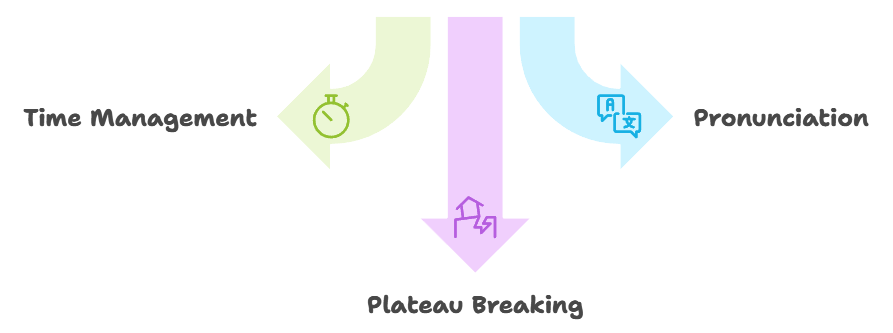How to Learn French as an Adult: A Science-Backed Guide for Success
Learning French as an adult is not only possible but can be highly rewarding when you use the right methods and understand how your mature brain works. Adults actually have several advantages over children in language learning, including stronger analytical skills and better pattern recognition abilities.
Key Takeaways
- Adult brains are uniquely equipped for language learning
- Technology and neuroscience-based methods accelerate progress
- Professional certifications provide clear learning goals
- Customized learning paths work better than one-size-fits-all approaches
- Cultural immersion is crucial for long-term success
The Science Behind Adult Language Learning
The adult brain processes language differently than a child’s brain, but this isn’t a disadvantage. Research shows that adults excel at understanding complex grammar patterns and can learn vocabulary more efficiently due to their developed cognitive abilities.
Brain-Friendly Learning Strategies:
- Study in 25-minute focused sessions
- Review material at spaced intervals
- Connect new words to existing knowledge
- Use visualization techniques
Modern Learning Tools and Methods
Today’s technology offers unprecedented opportunities for French learners. Virtual reality and AI-powered tools have revolutionized how we can practice and perfect our French skills.
| Learning Tool | Best For | Time Investment |
|---|---|---|
| VR Apps | Immersion Practice | 20-30 min/day |
| AI Language Partners | Conversation | 15-20 min/day |
| Podcasts | Passive Learning | 30-45 min/day |
| Language Exchange Apps | Real Practice | 30 min/day |
Professional Development Path
For career-focused learners, French certification provides a clear roadmap to success. The DELF/DALF certifications are internationally recognized and can significantly boost your professional prospects.
Certification Levels:
- DELF A1: Beginner
- DELF B2: Professional Working Proficiency
- DALF C1: Advanced Academic Level
Specialized Learning Approaches
Every adult learner is unique, and some may face specific challenges like dyslexia or ADHD. Modern learning methods can accommodate these differences through:
- Multi-sensory learning techniques
- Color-coded grammar systems
- Text-to-speech tools
- Specialized language apps
Cultural Integration Strategies
Learning French isn’t just about memorizing words and rules. Understanding French culture accelerates your learning and makes it more enjoyable.
Daily Cultural Immersion Activities:
- Watch French news with subtitles
- Follow French social media accounts
- Cook using French recipes
- Listen to French music during daily activities
Practical Application Tips
The key to success is creating a sustainable learning routine that fits your lifestyle. Here’s a sample weekly schedule:
| Day | Morning | Evening |
|---|---|---|
| Mon | Vocabulary (15 min) | Grammar (20 min) |
| Wed | Podcast (30 min) | Writing (15 min) |
| Fri | Speaking Practice (20 min) | Culture Study (20 min) |
| Sat | Immersion Activities (1 hour) | Review (30 min) |
Progress Tracking and Motivation
Setting clear goals and tracking your progress is crucial for maintaining motivation. Consider these milestones:
3-Month Goals:
- Master basic conversations
- Learn 500 core words
- Complete DELF A1 preparation
6-Month Goals:
- Hold intermediate conversations
- Understand French media
- Prepare for DELF A2
Common Challenges and Solutions
Adult learners often face specific challenges, but each has a solution:
Time Management: Create a realistic schedule that fits your daily routine. Even 15 minutes of focused study is better than an irregular pattern.
Pronunciation: Use speech recognition tools to practice and receive immediate feedback. Record yourself speaking to track improvement.
Plateau Breaking: When progress seems to slow, switch learning methods or focus areas to maintain engagement and continue advancing.

Measuring Success
Success in learning French isn’t just about test scores. Consider these indicators of progress:
- Understanding French movies without subtitles
- Holding conversations with native speakers
- Reading French news articles
- Writing emails in French
- Thinking in French
Remember, learning French as an adult is a journey that requires patience and consistency. Focus on progress, not perfection, and celebrate small victories along the way. With the right approach and tools, you can achieve your French language goals while leveraging the unique advantages of adult learning.
The key is to combine traditional learning methods with modern technology while maintaining a consistent practice schedule. Whether your goal is professional development, personal enrichment, or both, success in learning French is absolutely achievable as an adult learner.
